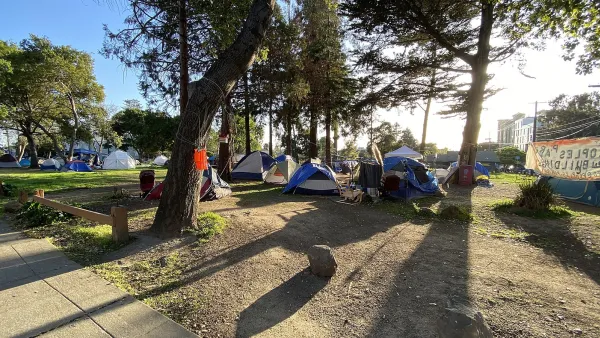High insurance costs are calling some organizations’ future into question as supportive housing providers struggle to meet their expenses.

Organizations that operate permanent supportive housing are faced with a steep rise in insurance rates, causing many of them to question their financial future and their ability to develop more housing and provide services for their residents.
As Robert Davis explains in Next City, “These issues have become especially pressing in states like California, Colorado, Louisiana and Florida, where insurance costs have risen significantly due to the increased risk of climate-related disasters.” Since 2019, the nation has lost over 21,000 permanent supportive housing units, while the unhoused population grew by over 200,000 people in the same period.
“Lindsay Brugger, vice president of urban resilience at the Urban Land Institute, tells Next City that many of the issues PSH providers face are emblematic of the broader issues within the insurance industry itself. Insurers are writing fewer policies in climate-disaster-prone areas, and reinsurance companies (firms that reimburse insurance companies) are also providing fewer reimbursements.” Permanent supportive housing providers are barred from passing on insurance costs to their tenants and often operate on very low margins of profit.
Now, federal assistance programs such as HUD’s Green and Resilient Retrofit Program and FEMA retrofitting grants could be discontinued under the new administration’s plan to cut government spending.
FULL STORY: Rising Insurance Costs Pose an Existential Risk for Permanent Supportive Housing

National Parks Layoffs Will Cause Communities to Lose Billions
Thousands of essential park workers were laid off this week, just before the busy spring break season.

Retro-silient?: America’s First “Eco-burb,” The Woodlands Turns 50
A master-planned community north of Houston offers lessons on green infrastructure and resilient design, but falls short of its founder’s lofty affordability and walkability goals.

Delivering for America Plan Will Downgrade Mail Service in at Least 49.5 Percent of Zip Codes
Republican and Democrat lawmakers criticize the plan for its disproportionate negative impact on rural communities.

Test News Post 1
This is a summary

Test News Headline 46
Test for the image on the front page.

Balancing Bombs and Butterflies: How the National Guard Protects a Rare Species
The National Guard at Fort Indiantown Gap uses GIS technology and land management strategies to balance military training with conservation efforts, ensuring the survival of the rare eastern regal fritillary butterfly.
Urban Design for Planners 1: Software Tools
This six-course series explores essential urban design concepts using open source software and equips planners with the tools they need to participate fully in the urban design process.
Planning for Universal Design
Learn the tools for implementing Universal Design in planning regulations.
EMC Planning Group, Inc.
Planetizen
Planetizen
Mpact (formerly Rail~Volution)
Great Falls Development Authority, Inc.
HUDs Office of Policy Development and Research
NYU Wagner Graduate School of Public Service





























